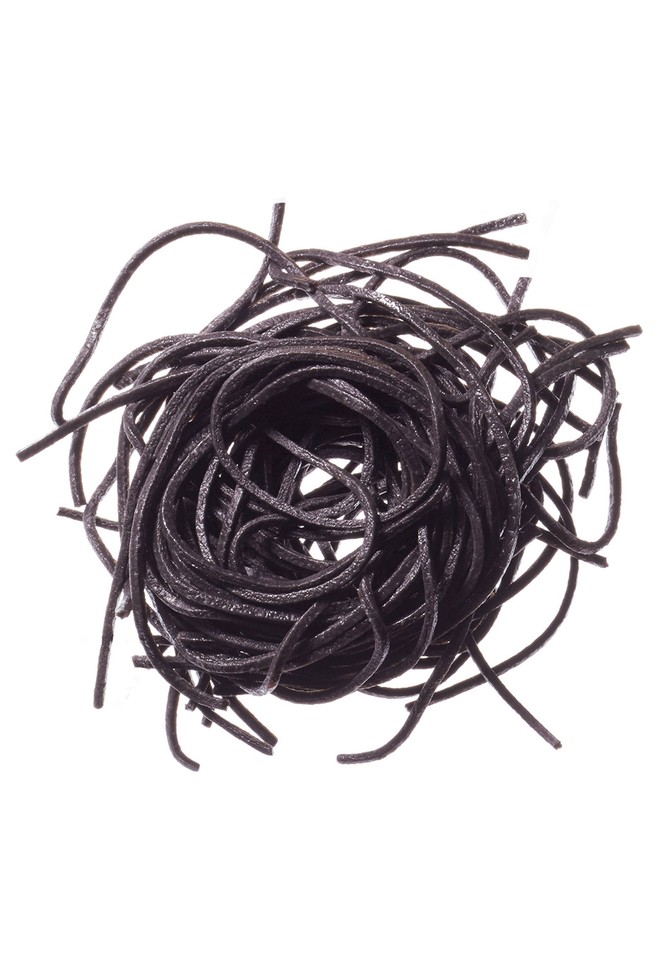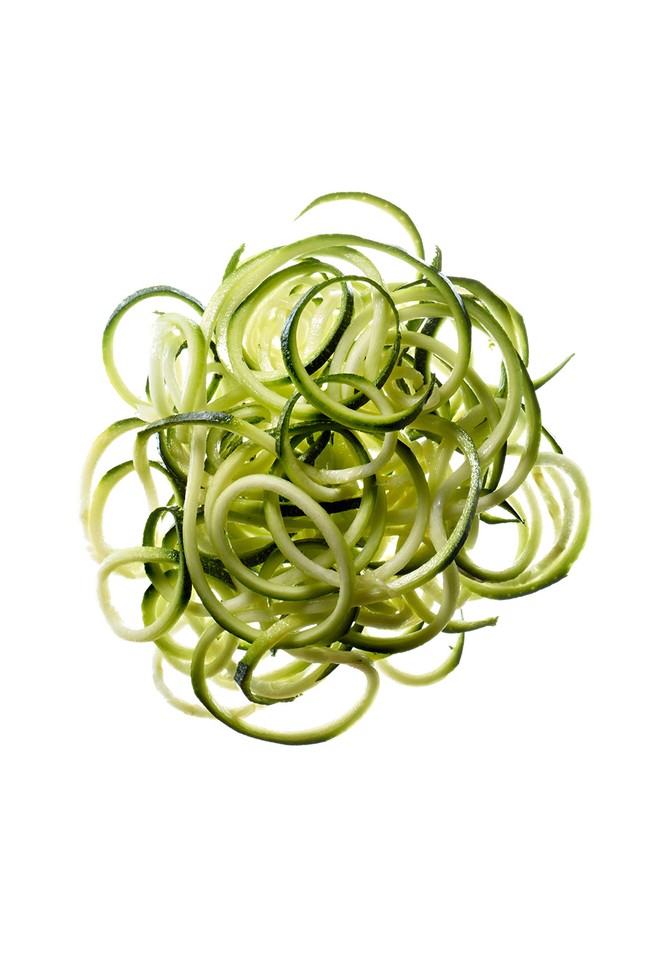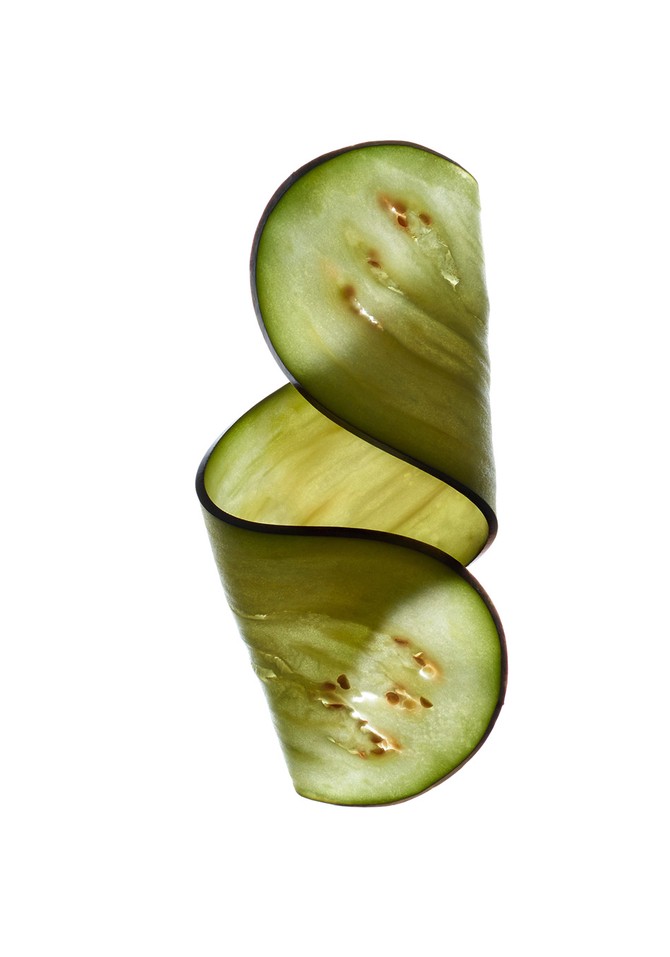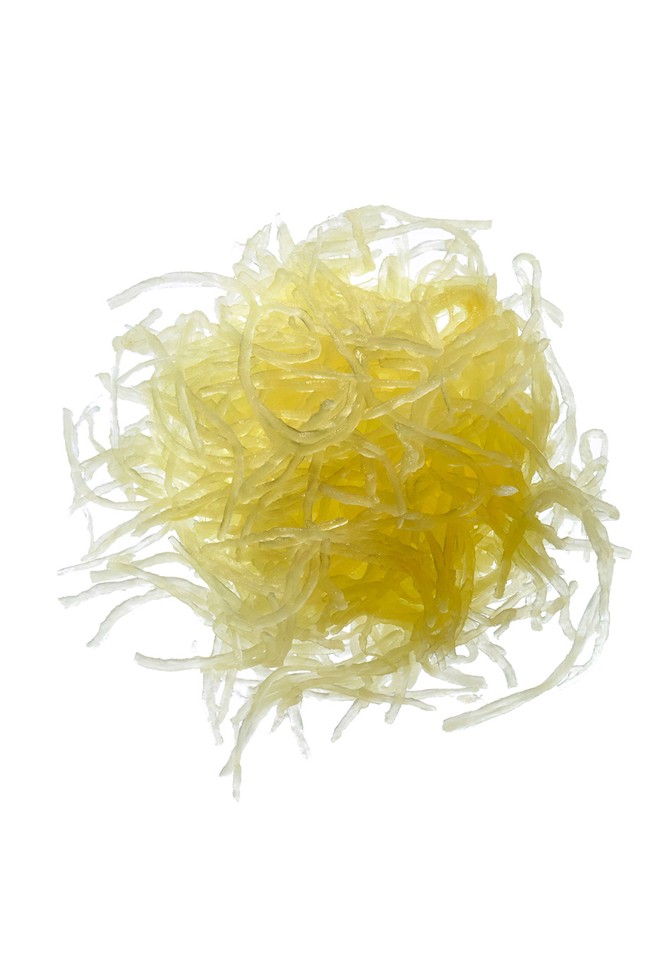Get Your Pasta Fix With These 4 Healthy Alternatives
Noodle on this, carb lovers: Spaghetti substitutes offer more nutrition in each delicious forkful.
By Johannah Sakimura

Photo: Adam Voorhes
Black Bean Noodles
Made from nutrient-rich beans, this boxed spaghetti alternative, which
can be found in grocery stores and online, boasts some pretty remarkable
stats: One serving delivers 12 grams of fiber (nearly twice as much as
a cup of 100 percent whole wheat pasta), a whopping 25 grams of protein
(almost as much as a three-ounce serving of chicken breast), and
36 percent of your daily iron needs. Try it in classic Italian dishes or
Asian-inspired cold salads.

Zucchini Pasta
Using a spiralizer or a vegetable peeler, you can transform fresh,
whole zucchini into thin, pastalike noodles or ribbons. A generous
three-cup portion sets you back only 58 calories and supplies nearly
20 percent of your daily adequate intake for potassium (more than
four times its starchier counterpart), a mineral that helps control
blood pressure. To take the raw edge off, briefly heat the zucchini
pasta in your sauce of choice (pesto pairs with it nicely).

Photo: Adam Voorhes
Eggplant Lasagna
Whip up a lighter version of a family-dinner staple by using eggplant slices
in place of flat white noodles. Eggplant is a good source of soluble fiber,
which helps reduce cholesterol. Cut two unpeeled eggplants into thin sheets,
mist with oil spray, and roast in a 400-degree oven for about ten minutes
per side—then they're ready for your favorite lasagna recipe.

Photo: Adam Voorhes
Spaghetti Squash
True to its name, baked spaghetti squash easily forks apart into long,
thin strands that offer plenty of nutritional bang for the bite. Three cups
contain only 126 calories—the same amount of spaghett
i packs 663. That three-cup serving also includes about 22 percent of your
recommended daily dietary allowance of vitamin C. A medium squash,
cut in half lengthwise, will roast in 30 minutes to an hour in a
375-degree oven (avoid overcooking, or your al dente
"noodles" will turn to mush). Spaghetti squash holds up
well to heartier rags, like ground-turkey marinara or olivey
puttanesca.
From the October 2014 issue of O, The Oprah Magazine

